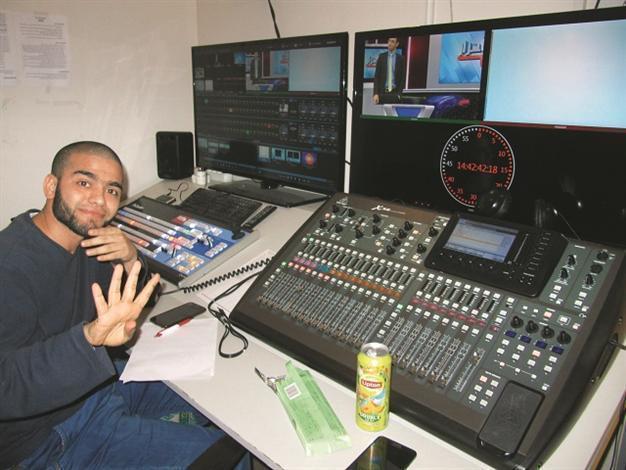Ankara will look into content of Egyptian TVs in Turkey
ANKARA

The broadcasts by three stations - Aan, Rabia, and Al-Şark - which have reportedly called for violence and called on foreigners to leave Egypt, have aroused concern in Cairo. A Hürriyet reporter photographed Rabia TV headquarters.
Ankara will look into the content of the TV stations with alleged links to the Muslim Brotherhood broadcasting online to Egypt through Turkey, the Turkish Foreign Ministry has stated.
"We will look into the content," Foreign Ministry spokesperson Tanju Bilgiç told the Daily News Feb. 3.
“Anybody that has the right of legal habitation with a work permit in our country can use freedom of expression within the boundaries of the laws and they can act in line within this framework,” he told journalists at a meeting.
Saying that he had not seen the content of the Egyptian broadcasters, Bilgiç said the case was not only the concern of the Foreign Ministry, but also of Turkey’s radio and television watchdog, RTÜK.
The broadcasts by three stations – Aan, Rabia, and Al-Şark – which have reportedly called for violence and called on foreigners to leave Egypt, have aroused concern in Cairo. The stations allegedly called on foreigners to leave the country before an investment summit next month, also saying they had received intelligence information that police and soldiers would be targeted and killed.
Turkey condemns mass death sentences in EgyptElaborating on an Egyptian court’s decision to sentence 183 men to death over allegations of killing 13 policemen in 2013, Bilgiç said the decision would not contribute to the democratization of Egypt.
In a separate statement, the Foreign Ministry has harshly condemned the court decision ruling, accusing the judiciary decision of being politically motivated.
“We strongly condemn the confirmation of the death sentences of 183 people, constituting a new contingent of mass death sentences, which has reached 1,000 people, in the framework of political decisions taken by the courts following the coup in Egypt in July 2013,” the Turkish Foreign Ministry said in a statement released on Feb. 3.
The defendants, many of whom are supporters of ousted Egyptian president Mohamed Morsi and members of the Muslim Brotherhood group, were sentenced to death for their alleged involvement in an attack on a police station in the town of Kerdasa in August 2013.
“It is obvious that Egypt, where the number of political prisoners has risen to 20,000 since the coup in 2013, cannot reach lasting peace and stability through mass death sentences, which hurt human consciences and fell short of fair trial,” the ministry statement read.
Turkey will maintain its solidarity with the Egyptian people, it added, echoing Turkish politicians’ constant emphasis on unity with Egyptian people since Morsi’s ouster, which severely strained ties between the two countries.
Since the army deposed Morsi on July 3, 2013, at least 1,400 people have been killed in a police crackdown on protests, mostly Islamists supporting the ousted leader.
Hundreds of his supporters have been sentenced to death in swift mass trials, which the United Nations says were “unprecedented in recent history.”
